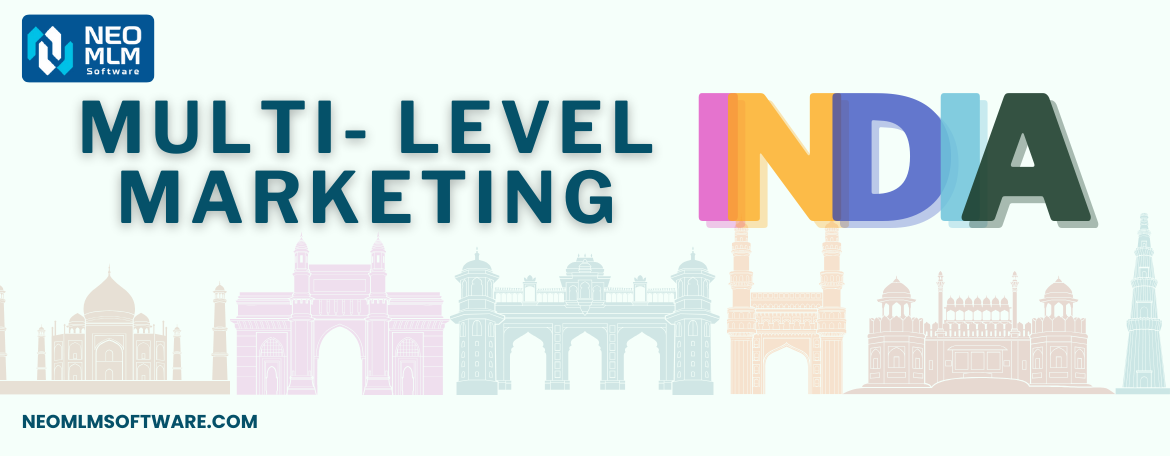Multilevel Marketing in India
Do you dream of financial independence and an alternative source of income? You’re not alone. Many individuals, just like you, are exploring new avenues for financial freedom.
Traditional career paths can be limiting, and the pursuit of financial freedom often leads people to uncharted territories. MLM has emerged as a beacon of hope for those seeking a different route to success.
What is Multilevel Marketing?
In simple words, Multilevel Marketing is a strategy that some companies use to sell their products or services. Instead of relying solely on traditional retail channels, these companies employ a network of independent distributors or representatives.
Understanding the Concept of Multilevel Marketing
The uniqueness of MLM lies in its multi-tiered compensation structure. As a distributor, you not only earn commissions from your direct sales but also from the sales made by the distributors you recruit. This creates a hierarchical structure that can lead to exponential growth and, ideally, substantial income for those at the top.
The allure of MLM often lies in the promise of financial freedom, flexible working hours, and the opportunity to build a business with minimal upfront investment. However, it’s essential to approach this realm with a discerning eye, as not all MLM opportunities are legitimate.
Is Multilevel Marketing (MLM) legal in India?
We’ll unravel the legal intricacies of MLM, providing valuable insights for the ideal customer navigating this dynamic landscape.
Legal vs. Illegal MLM in India
In the vast landscape of MLM, legality is a critical factor that can make or break an entrepreneur’s journey. India, like many other countries, has clear regulations in place to distinguish between legitimate MLM ventures and fraudulent pyramid schemes.
Legal MLM: Legitimate MLM companies operate within the bounds of the law. They focus on selling actual products or services, with the compensation structure primarily based on product sales. In legal MLM, the emphasis is on creating a sustainable business through genuine product movement rather than recruiting new members.
Illegal MLM (Pyramid Schemes): On the flip side, illegal MLM, often disguised as legitimate opportunities, relies heavily on recruitment fees rather than product sales. The primary focus is on building an extensive network of recruits, with little or no emphasis on the actual sale of products or services. Pyramid schemes are unsustainable and often lead to financial losses for participants, except for those at the very top.
Navigating this legal maze requires a keen eye and due diligence. Prospective MLM participants should thoroughly research companies, scrutinize their compensation plans, and ensure that the emphasis is on product sales rather than recruitment.
Ensuring Legitimate Opportunities
Consumer Protection Guidelines: The Ministry of Consumer Affairs, Food, and Public Distribution in India has established guidelines to protect consumers from fraudulent schemes. These guidelines set the parameters for legal MLM operations and provide a foundation for individuals to make informed decisions.
Emphasis on Product Sales: Legal MLM companies focus on genuine product sales as the primary revenue source. The emphasis is on building a sustainable business through the movement of products or services in the market. This distinguishes them from illegal pyramid schemes that primarily thrive on recruitment fees.
Legal Compliance: For an MLM company to operate legally in India, it must adhere to these consumer protection guidelines. This includes transparent compensation plans, clear product lines, and a commitment to ethical business practices. Prospective participants should be diligent in ensuring that the MLM opportunity they are considering aligns with these legal parameters.
Trends and Challenges of Multilevel Marketing in India
India has witnessed a surge in the popularity of Multilevel Marketing in recent years. The promise of entrepreneurship, coupled with the potential for substantial income, has attracted a diverse range of individuals. However, this growing industry is not without its challenges.
Cultural Dynamics: In a country known for its close-knit communities, the power of word-of-mouth marketing cannot be overstated. MLM companies often leverage these social connections, making inroads into communities and creating networks that transcend traditional market boundaries.
Regulatory Framework: India has taken steps to regulate MLM activities to protect consumers from fraudulent schemes. The Ministry of Consumer Affairs, Food, and Public Distribution has guidelines in place to distinguish legal MLM from illegal pyramid schemes. Prospective MLM participants should familiarize themselves with these regulations to make informed decisions.
Educational Initiatives: As the industry grows, there is a pressing need for educational initiatives that empower individuals with the knowledge to navigate the MLM landscape. Understanding compensation plans, recognizing red flags, and differentiating between legitimate and fraudulent opportunities are crucial aspects of MLM education.
Frequently Asked Questions on MLM in India
1. Is Multi Level Marketing legal in India?
Yes, Multilevel Marketing is legal in India, provided it adheres to the guidelines set by the Ministry of Consumer Affairs, Food, and Public Distribution. Legal MLM companies focus on product sales, transparent compensation plans, and ethical business practices. However, illegal pyramid schemes, which heavily rely on recruitment fees, are considered fraudulent and are prohibited.
2. How can I distinguish between a legitimate MLM opportunity and a pyramid scheme in India?
Legitimate MLM opportunities emphasize product or service sales, have transparent compensation plans, and operate within the legal framework. Pyramid schemes, on the other hand, prioritize recruitment over product sales and often promise high returns based on membership fees. Conduct thorough research, verify legal compliance, and ensure a focus on product value to distinguish between the two.
3. Are there any regulations or guidelines for Multilevel Marketing in India?
Yes, the Ministry of Consumer Affairs, Food, and Public Distribution in India has established guidelines to protect consumers from fraudulent schemes. MLM companies must adhere to these guidelines, which include transparent operations, clear product lines, and a commitment to ethical business practices.
4. How can I ensure the legitimacy of an MLM company in India before joining?
Before joining an MLM company in India, conduct thorough research. Verify the company’s background, review its product or service offerings, and scrutinize the compensation plan. Reputable MLM companies are transparent about their operations and willingly provide comprehensive information to potential participants.
5. Can anyone participate in Multilevel Marketing in India?
Yes, most MLM opportunities in India are open to anyone interested in joining. The entry requirements are typically minimal, making it accessible for individuals from various backgrounds and levels of experience.
6. What are the risks associated with Multilevel Marketing in India?
While legitimate MLM opportunities offer the potential for financial success, there are risks associated with the industry. Some risks include market saturation, reliance on recruitment, and potential reputational damage. It’s crucial for participants to approach MLM with a realistic understanding of both the opportunities and challenges.
7. How do I succeed in Multilevel Marketing in India?
Success in Multilevel Marketing in India requires a combination of factors, including thorough education about the industry, ethical business practices, and a commitment to personal development. Building trust within your network, focusing on product value, and continuous learning are essential elements for success.
8. Are there educational resources available for individuals interested in Multilevel Marketing in India?
Yes, there are various educational resources, both online and offline, that provide insights into Multilevel Marketing in India. These resources cover topics such as compensation plans, legal guidelines, and effective sales and recruitment strategies.
9. Can I earn a full-time income through Multilevel Marketing in India?
While some individuals achieve significant financial success in Multilevel Marketing in India, it’s essential to approach it as a business venture and not a guaranteed path to quick riches. Success often requires dedication, hard work, and a strategic approach to building and maintaining a successful network.
Conclusion
Multi Level Marketing in India holds the promise of financial independence, entrepreneurial success, and personal growth. However, success in this dynamic realm hinges on a thorough understanding of the concept, a commitment to ethical practices, and a discerning eye for legal compliance.






